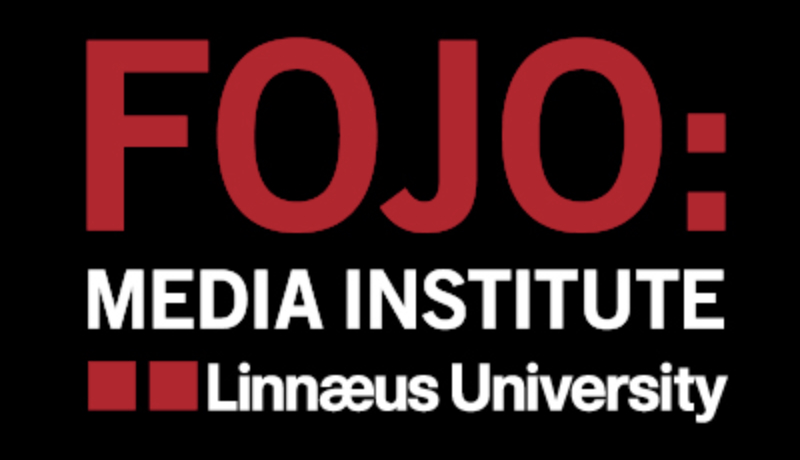
Media Helping Media is hosted by the Fojo Media Institute and is one of its official training resources.
From our BASIC JOURNALISM section
Court reporting for beginners
Reporting on court hearings is an essential part of journalism. It requires an understanding of local laws and knowing what can be reported and what can’t.
Where does news come from?
The following are the main areas of life in which we expect to find news stories. For each category below, think of at least one event or situation which could make a news story in your own society.
From our EDITORIAL ETHICS section
Impartiality in journalism
Being impartial means not being prejudiced towards or against any particular side. All journalists have their own views, however they must learn to leave aside their own personal perspectives.
Respecting privacy as a journalist
Journalists face a difficult balancing act. They must respect privacy, but they must also be rigorous and robust in their investigation into issues that are in the public interest.
From our ADVANCED JOURNALISM section
Confronting editorial bias in election coverage
Allegations of bias in the news media happen all the time, but they are most evident at election time. When deadlines are tight and pressures are greatest, the weighing of these factors may be less thorough.
How to spot errors in your writing
Most journalists need a second pair of eyes to check their copy in order to spot any factual, grammatical or spelling mistakes. This is because it's often difficult to see your own errors.
 Unfortunately, Facebook has decided to disable our Media Helping Media Facebook group. Our Facebook page is still live.
Unfortunately, Facebook has decided to disable our Media Helping Media Facebook group. Our Facebook page is still live.
 Do you have any wisdom to share with those without access to formal training? If so please get in touch.
Do you have any wisdom to share with those without access to formal training? If so please get in touch.
 Media Helping Media (MHM) provides free training resources for those starting off in journalism. Read more …
Media Helping Media (MHM) provides free training resources for those starting off in journalism. Read more …
 The content on Media Helping Media (MHM) is released via Creative Commons BY NC SA 4.0. Please read the MHM copyright terms.
The content on Media Helping Media (MHM) is released via Creative Commons BY NC SA 4.0. Please read the MHM copyright terms.
The mindset for investigative journalism
The investigative mindset is responsible for solving more information mysteries than probably any other factor. If you haven’t started writing down your best strategies now might be the time to start.
20 ways a suspect can help a journalist
Sources are one of the most valuable resources for a journalist. Without sourced information, the reports produced may end up being padded with rumour and personal opinion.
Avoiding the pitfalls of investigative journalism
Producing a piece of investigative journalism to international standards can be a daunting prospect. This guide is to help journalists avoid some of the pitfalls and problems often encountered.
Convergence, workflows, roles and responsibilities
A converged newsroom operates like a content factory, responsible for all intake, production and output. It gathers and processes raw material, creates different products, and delivered them to the target audience.
Adopting the ‘big story’ approach
Planning is critically important in the news business. It’s the mark of professionalism and the essence of good coverage. But there are some things you can’t plan.Big stories happen out of the blue. And when they happen you have to spring into action immediately.
Getting the best out of a news meeting
Most newsrooms hold regular news meetings where the editor sets out what news stories are going to be covered and invites the news team to offer ideas about how the news should be developed and covered.
Setting up a media business – four essential steps
A media business is like a table with four legs. These are the media organisation's target audience, the core editorial proposition that it offers to that audience, the values that the business holds dear, and the market that sustains the business. Each leg has to be strong and firm. If one leg is weak, the table wobbles. A shaky media organisation is not good.
Adapting to changing audience behaviour
The challenge of keeping up with changing audience behaviour and ensuring that the content that is produced is available on all the devices the audience uses to access information.
The value of thorough research for media organisations
Knowing your audience, understanding the issues they face, and being aware of what they think about society - and your media organisation in particular - are important factors for fine-tuning what you offer in order to better inform the public debate.
Returning ‘favours’ – scenario
In this scenario you are a parliamentary reporter being put under pressure to cover a story by a politician who says they did you a favour in the past.
Off-the-record chat – scenario
What should a journalist do with off-the-record information? Should they agree to conditions on its use? Should they ignore any conditions and do the story anyway? Or should they use what they have been told as background information and dig further? Try our scenario and decide what you would do in the circumstances.
Legal threats – scenario
Journalists often come under pressure with threats of legal action if they don't publish or broadcast what others want. In this scenario we look at a scenario where a reporter is sent a cease and desist letter and told legal action will be taken against them if they don't add 'positive-spin' to an article.
How to design a successful media training plan
A well-designed media training plan could make the difference between the success and the failure of a media business. Get it wrong and you could be adding to the problems you were asked to address.
Wanted, your media know-how
Are you a journalist, media manager or media trainer with some tips to share for the benefit of others? If so, please consider submitting a training module to Media Helping Media.
Evaluating the impact of training
The evaluation process at the end of a media training session begins the moment you are engaged by the media organisation you are being asked to help because this is when you know the expectations and deliverables.




